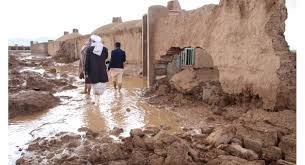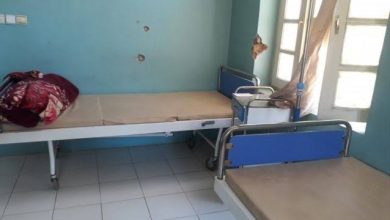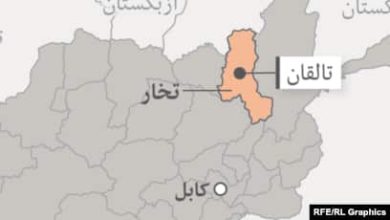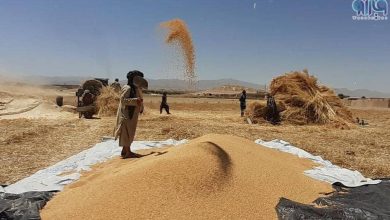Heavy Rain and Floods in Farah Province Leave 21 Dead and 6 Injured
Officials in Farah province have announced that as a result of heavy rainfall and flooding in the Qala-e-Kah district, 21 people have lost their lives and 6 others have been injured. The head of Farah’s Disaster Management and Preparedness Department, Mawlavi Mohammad Asra'il Sayar, stated that the incident occurred around 3:30 PM today in the district of Pushtkoh.

Weezha Roz-Farah-He further explained that a number of people, including women and children, had gone to the mountains for recreation when they got trapped in the flood. Of these, 21 people died and 6 others were injured.
Mawlavi Mohammad Naseem Badri, spokesman for the Farah Police Command, also confirmed the incident, stating that local security forces had arrived at the scene and assisted in the transportation of the bodies and injured individuals.
Farah province, located in western Afghanistan, is known for its mountainous terrain and seasonal floods.
The geographical features of the province, including narrow valleys and steep slopes, make it highly susceptible to sudden and severe flooding.
Additionally, local infrastructure for dealing with such natural disasters is typically inadequate, which exacerbates the impact of these events.
Officials are currently assessing the damage in the flood-affected areas and efforts to support the families affected by the incident are ongoing.
Local emergency services and humanitarian organizations have been activated to assist the injured and conduct search and rescue operations in the area.
This tragic incident highlights the vulnerability of certain regions in Afghanistan, especially mountainous areas, and underscores the need for better preparedness and measures to address natural disasters.
The ongoing crisis in Farah also emphasizes the importance of community-based disaster management strategies and the need to strengthen resilience against recurrent floods, especially in rural, vulnerable areas.
The government and humanitarian organizations are collaborating to support affected families and prevent future occurrences of such incidents by improving early warning systems and resilient infrastructure.
Weezha Roz




